Information about loosening the room (capacity limit) for rooftop solar power (RTSP) and selling it to the grid has just been considered by the competent authority, causing the renewable energy market to start bustling. According to economic experts, the policy of prioritizing the development of RTSP is the desire of enterprises, because it not only helps reduce costs and carbon emissions, but also creates a competitive advantage for exports.
Afraid to invest because... no output
Mr. Nguyen Xuan Thang, General Director of Schaeffler Vietnam, said that the company is facing difficulties in connecting to the power grid of the industrial park (IP). Accordingly, the company invested its own capital to invest in the solar power system in the form of self-production and self-consumption with a capacity of about 2.7 MW. However, the investor of Amata Industrial Park (Bien Hoa City, Dong Nai Province) did not allow the company to connect to the IP's power grid, because the power grid in this IP was invested by the investor himself. Mr. Thang said that although the policies, decrees, and circulars sound very reasonable, when put into practice, there are still many shortcomings and problems at the local level, or at the management level of the IPs.
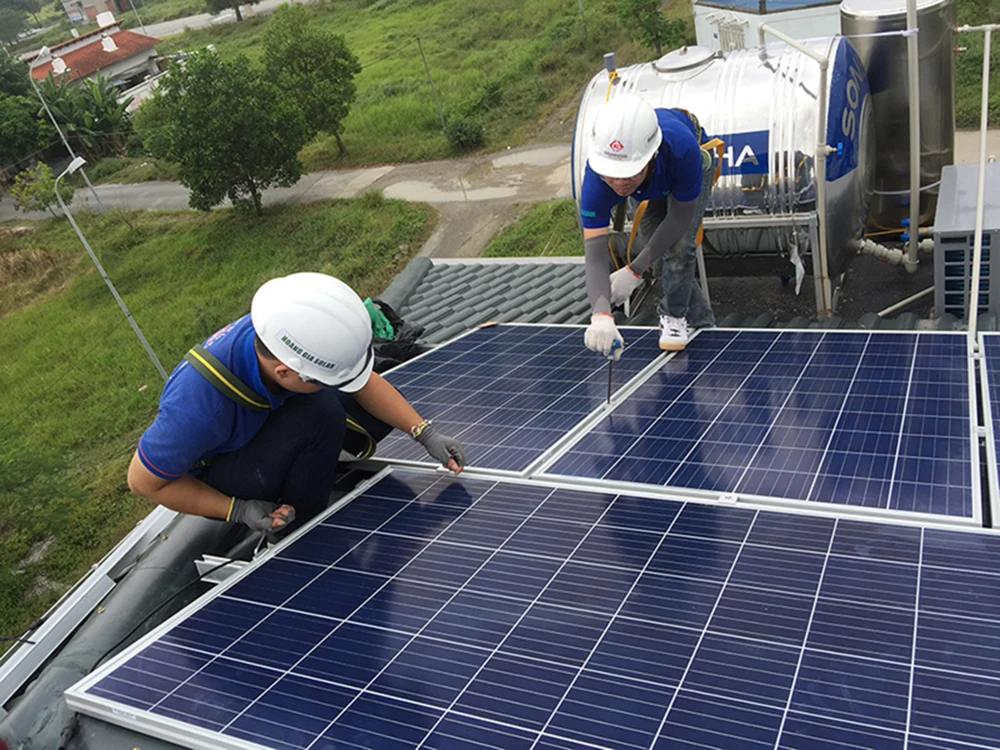
Similarly, Mr. Truong Cong Vu, General Director of Global Energy Company, shared that many domestic manufacturing enterprises and foreign-invested enterprises (FDI) have a need to install solar power, but due to the policy adjustment, enterprises are hesitant to install, even though 100% of the electricity output is used to serve the factory's production, helping enterprises achieve green certification and reduce emissions. "Enterprises do not pay much attention to buying and selling, but are afraid that spending billions of VND to install solar power but being forced to remove it halfway through use will be very costly. While official regulations have not been issued, there should be a temporary policy for enterprises to register at the Department of Industry and Trade to install solar power within the approved capacity of 2,600 MW in Power Plan 8", Mr. Truong Cong Vu shared.
According to Mr. Tran Thien Long, Permanent Vice President of the Vietnam Industrial Real Estate Association (Vietnam Real Estate Association), rooftop solar power is a very urgent need for industrial park investors and secondary investors. “In 2020, when coordinating with Vietnam Electricity Group and the Management Board of Export Processing Zones - Industrial Parks of Ho Chi Minh City to launch the deployment of rooftop solar power for enterprises, within just one year, it reached nearly 100MW. Ho Chi Minh City alone has nearly 2,000 investors, so if all are done, it will be nearly 2,000MW. In order to fully exploit the potential of this field, the State Bank should have a fund to support green finance for enterprises to invest in rooftop solar power. Currently, Vietnam only has a few banks lending but it is not popular, while enterprises are having financial difficulties to make a green transition,” said Mr. Tran Thien Long.
Cut down on processes and procedures
Mr. Vo Tan Thanh, Vice President of the Vietnam Federation of Commerce and Industry (VCCI), said that the priority policy for developing renewable energy is the desire of enterprises, because it not only helps enterprises reduce costs and carbon emissions, but also creates a competitive advantage when exporting and adapting to the requirements of large markets. Typically, the European Union (EU) is focusing on promoting the European Green Deal Strategy. Specifically, textile, electronics, information technology, agricultural and food products exported to the EU must meet strict requirements on energy efficiency, emission reduction, waste and use of recycled materials. Products such as iron, steel, aluminum and cement are also forecast to be strongly affected by the green transition process in the EU market in the coming time. The Vice President of VCCI emphasized that investing in installing renewable energy is an important basis for enterprises to own green certificates and get priority points when exporting to "difficult" markets.
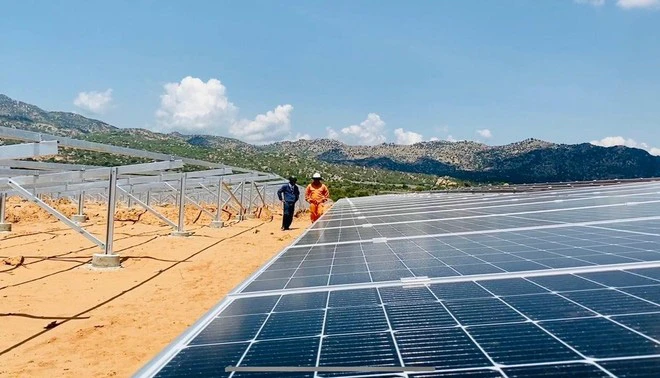
More specifically, Mr. Vu Duc Giang, Chairman of the Vietnam Textile and Apparel Association (Vitas) informed that famous fashion brands in the world today require the elimination of all coal boilers - materials that emit bad gases into the environment, so businesses must switch to electric boilers. Thus, the production cost for a product increases by 10% -17% compared to burning coal. In addition, using grid-powered boilers increases costs by 15% -20% compared to using solar power. Therefore, textile and garment enterprises have installed solar power from the beginning and operated very effectively; gained extra points when working with brands; indicators on energy saving and water treatment have also improved, affecting the green certification assessment process.
“There needs to be reputable green certification organizations in Vietnam, moving towards being equivalent to international organizations, as well as agencies that guide, license and control solar power installation service businesses. Because installation is very easy, but it is not clear who is responsible for controlling incidents,” Mr. Vu Duc Giang suggested.
The Government Office has just issued Notice No. 387 on the conclusion of Deputy Prime Minister Tran Hong Ha regarding the development and promulgation of a decree regulating mechanisms and policies to encourage self-production and self-consumption of renewable energy. The Deputy Prime Minister requested the Ministry of Industry and Trade to complete the concept of "self-production and self-consumption" for renewable energy; and to add the rate of selling surplus electricity to clarify the connotation of self-production and self-consumption of renewable energy.
The purpose is to serve the local consumption needs of people and businesses. In case of surplus electricity, it is sold to the grid not exceeding 20% of the total capacity; there are appropriate policies to encourage the use of self-produced and self-consumed solar power in the direction of minimizing administrative processes and procedures.
DUC TRUNG
Source: https://www.sggp.org.vn/noi-gioi-han-cong-suat-va-duoc-ban-len-dien-luoi-tiep-suc-cho-dien-mat-troi-mai-nha-post756564.html


![[Photo] Third meeting of the Organizing Subcommittee serving the 14th National Party Congress](https://vstatic.vietnam.vn/vietnam/resource/IMAGE/2025/4/2/3f342a185e714df58aad8c0fc08e4af2)
![[Photo] General Secretary To Lam receives Russian Ambassador to Vietnam](https://vstatic.vietnam.vn/vietnam/resource/IMAGE/2025/4/2/b486192404d54058b15165174ea36c4e)




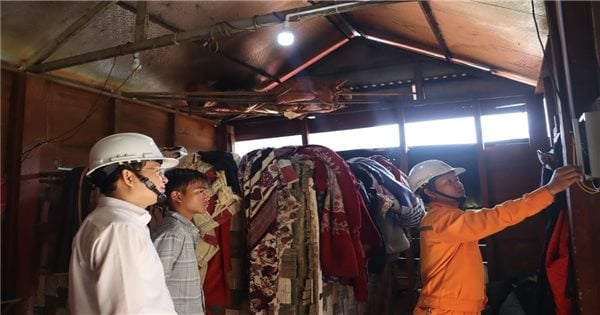









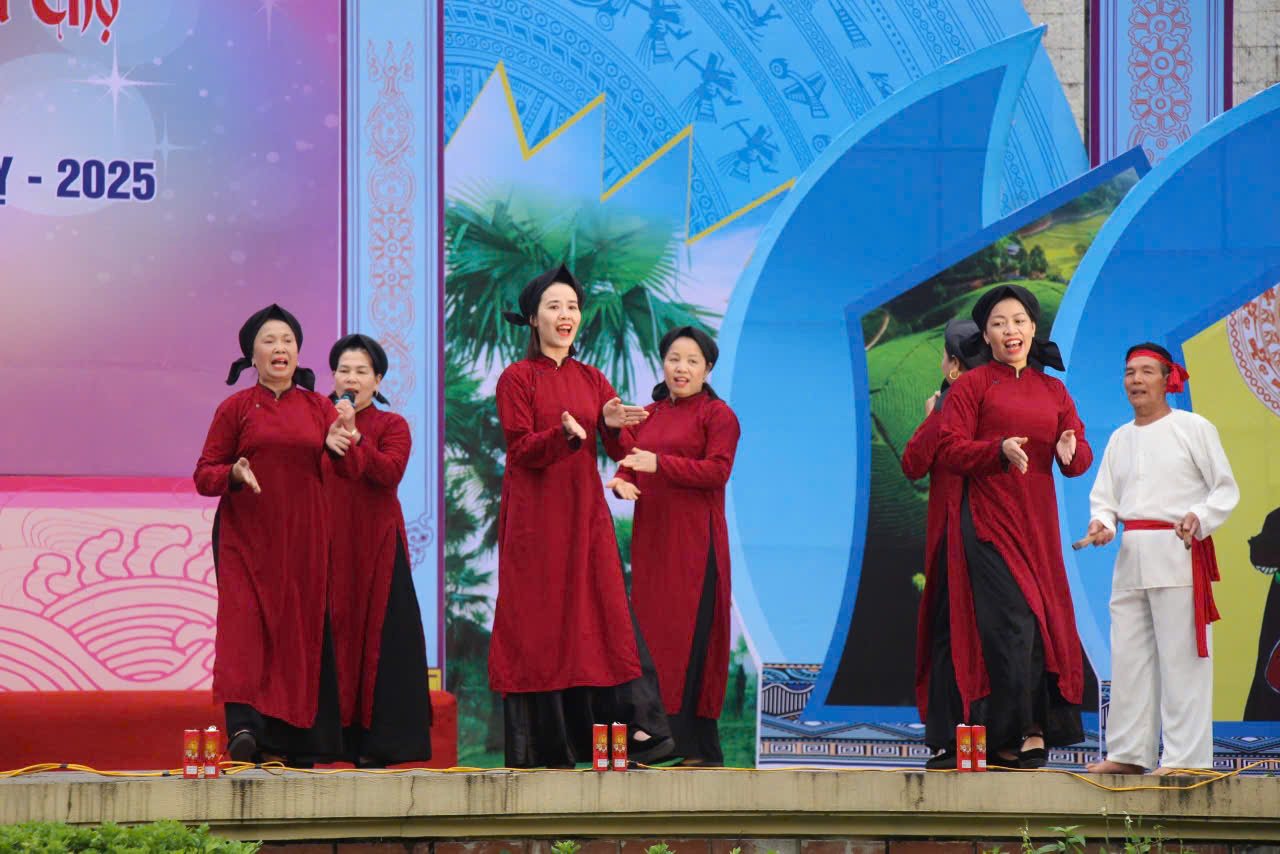










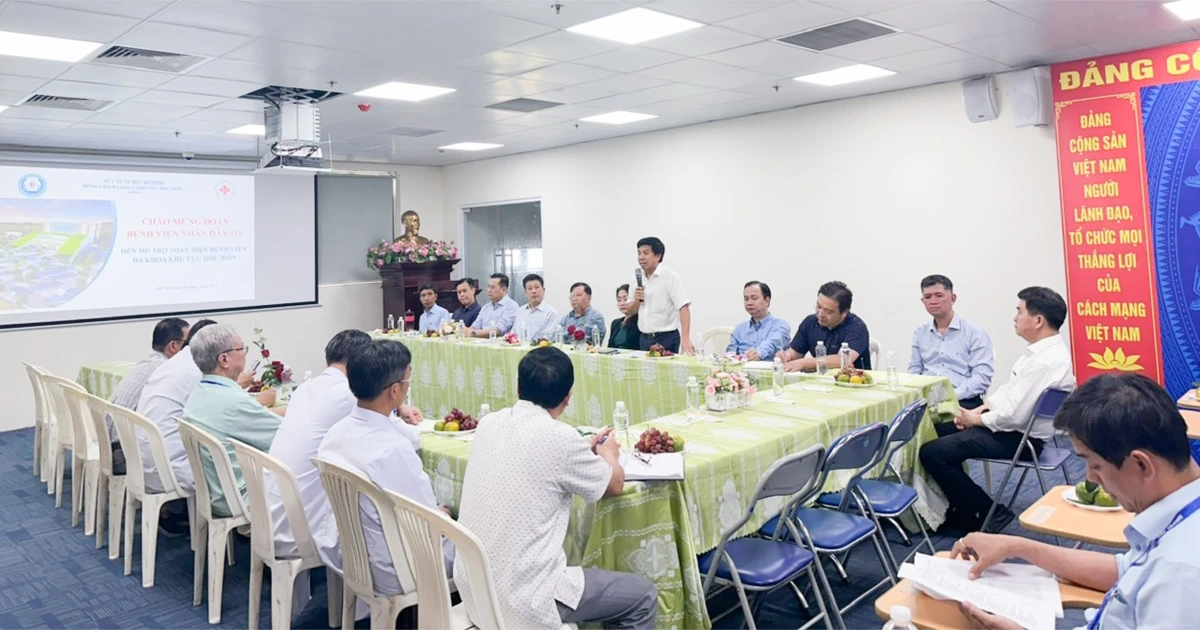


![[Photo] Relatives of victims of the earthquake in Myanmar were moved and grateful to the rescue team of the Vietnamese Ministry of National Defense.](https://vstatic.vietnam.vn/vietnam/resource/IMAGE/2025/4/2/aa6a37e9b59543dfb0ddc7f44162a7a7)










































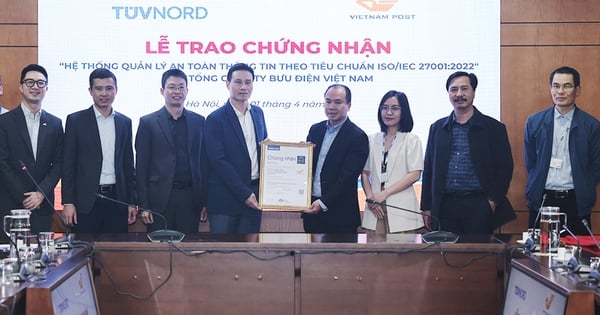




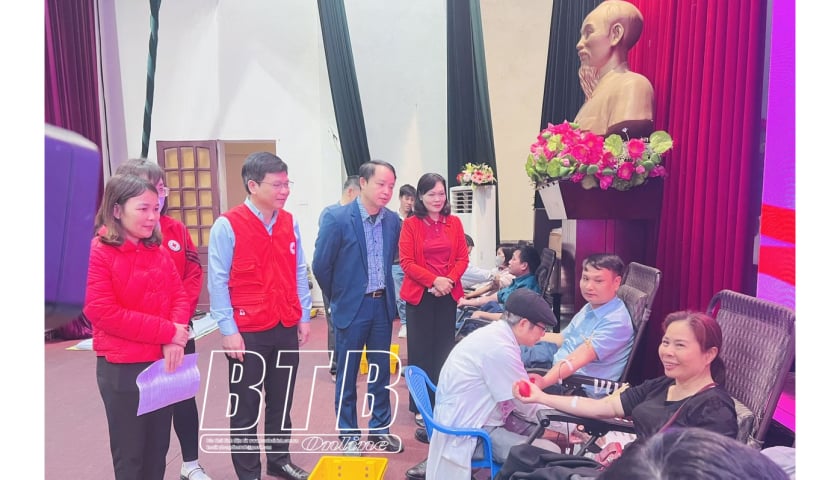


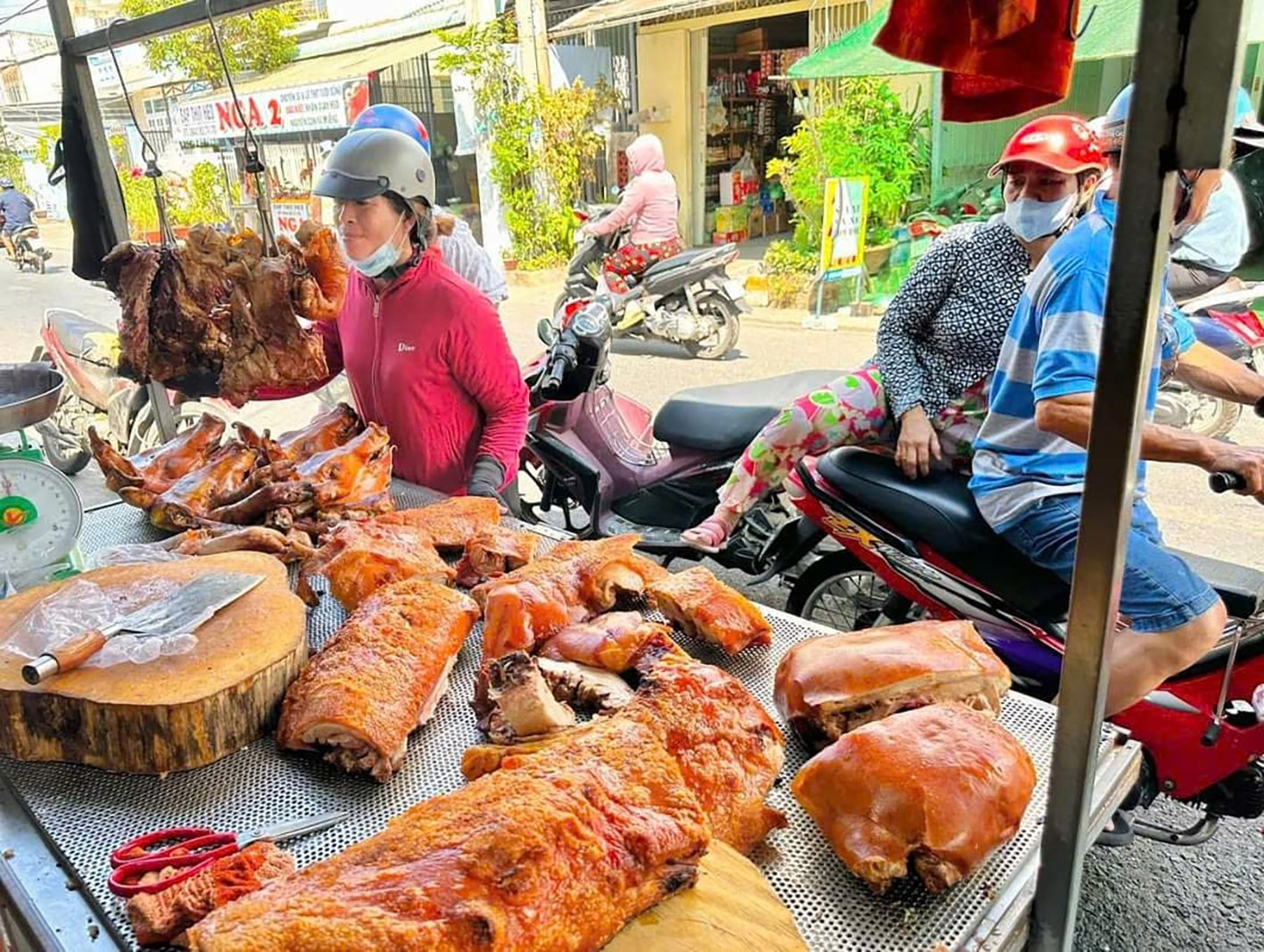


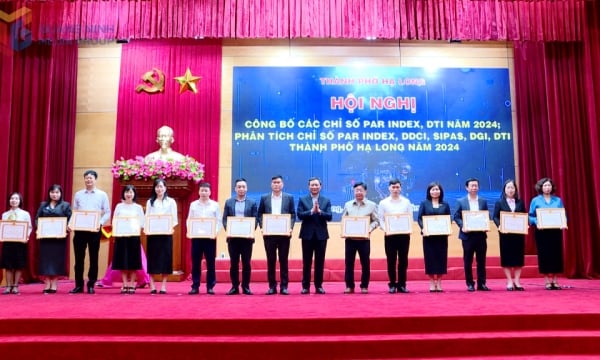
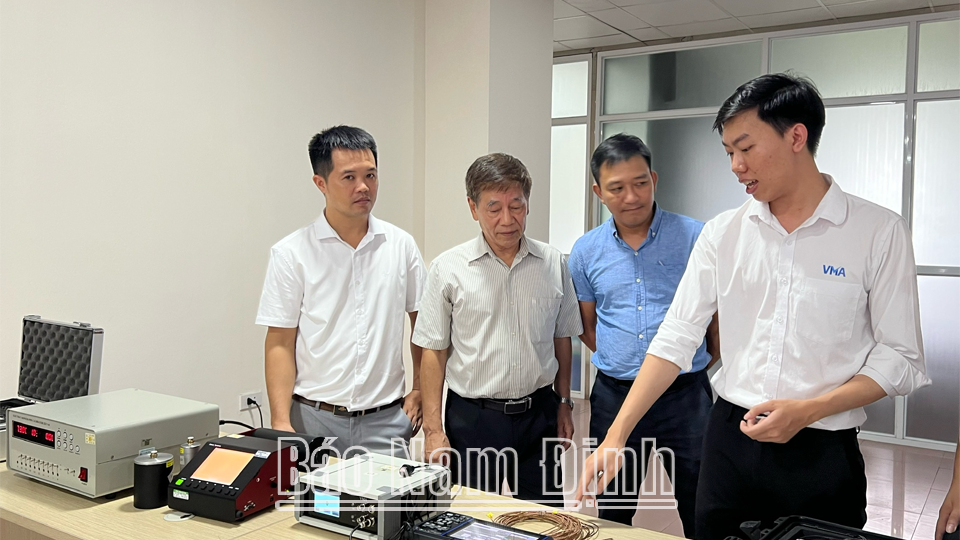









Comment (0)